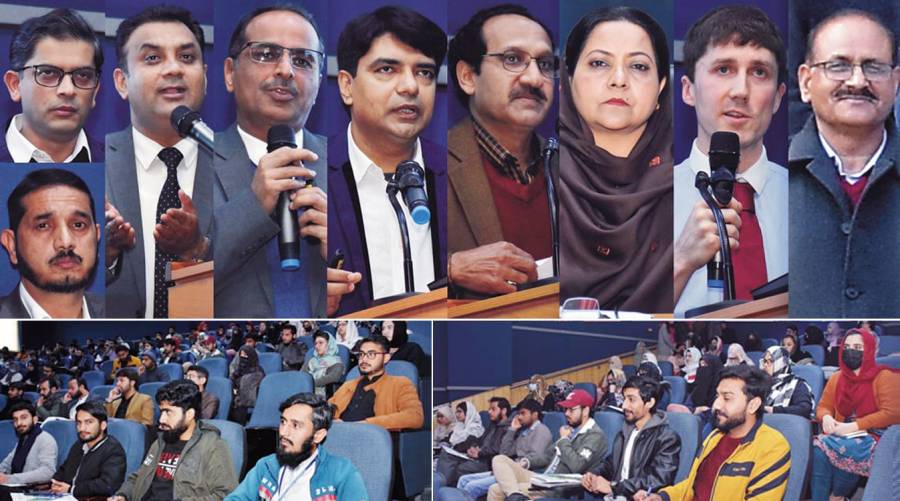Vegetables grown in peri-urban areas carry chemical contamination: experts

FAISALABAD: Gastroenteritis and related stomach ailments have been identified as a major threat claiming the lives of approximately 60,000 people each year in Pakistan, say the experts at an international seminar,' warning of chemicals contaminating the food chain through vegetables cultivated in peri-urban areas.
The seminar, titled 'Molecular and Agro-Ecological Interventions for Sustainable Peri-Urban Agriculture - A Gastroenteritis Context, was organized by the Department of Agronomy and the Centre of Agricultural Biochemistry & Biotechnology at the University of Agriculture Faisalabad (UAF), to address pressing issues in agricultural practices impacting public health.
Prof Dr Muhammad Sarwar Khan, the Pro-Vice Chancellor/Dean of Agriculture at UAF, stressed the need to promote kitchen gardening to ensure access to safe and nutritious food for the people. He advocated the motto "grow self and stay healthy" and called for modern water treatment techniques to safeguard agricultural produce from contamination by wastewater.
Highlighting urgent interventions required to tackle environmental degradation and water pollution, Prof Dr Khan urged collaborative efforts to address these challenges swiftly.
Dr Patrick McKenna from Canfield University, UK, discussed the ramifications of wastewater irrigation on vegetable crops in Faisalabad, attributing soil pollution to industrial activities and peri-urban expansion. He proposed biochar treatment as a potential solution to mitigate these environmental concerns.
Dr Muhammad Afzal, Deputy Chief Scientist at the National Institute for Biotechnology and Genetic Engineering (NIBGE), shed light on the presence of hazardous substances such as heavy metals, antibiotics, and pathogens in wastewater, contributing to the prevalence of various diseases.
Expressing apprehension over high levels of heavy metals and pathogens in the country's water sources, Prof Dr Abdul Khaliq, Chairman of the Agronomy Department at UAF, stressed the significance of biomaterial sciences in devising remedies for environmental issues and minimizing the impact of contaminants on the food chain.
Dr. Bushra Sadia, Director of the Center for Agriculture Biochemistry & Biotechnology, advocated for sustainable peri-urban agriculture through effective soil management and molecular interventions, advising the conservation of soil and water resources, particularly in impoverished peri-urban regions.
Dr Fahd Rasul endorsed tested biochar-based interventions to address the health risks associated with wastewater reuse in crop irrigation, promoting biochar as an eco-friendly and safe approach to mitigate the spread of gastroenteritis.
Addressing antimicrobial resistance as a critical health concern, Dr Mashkoor Gilani highlighted the alarming prevalence of drug-resistant infections in Pakistan, underscoring UAF's initiatives in assessing antibiotic use and studying transmission routes of drug-resistant bacteria across animals, the environment, and humans.
Dr Ghulam Mustafa provided practical demonstrations and hands-on training to enhance participants' capabilities in understanding and addressing the molecular aspects of disease transmission routes.
Trending
Popular
Revolutionary HIV drug can drastically cut treatment costs
-
AI model to improve EEG reading for ICU ...
04:00 PM, 5 Jun, 2024 -
Study links weight-neutral eating ...
04:00 PM, 11 May, 2024 -
Researchers strive to expand telehealth ...
04:00 PM, 11 May, 2024 -
UCFS clinical trial to test efficacy of ...
03:11 PM, 23 Apr, 2024




